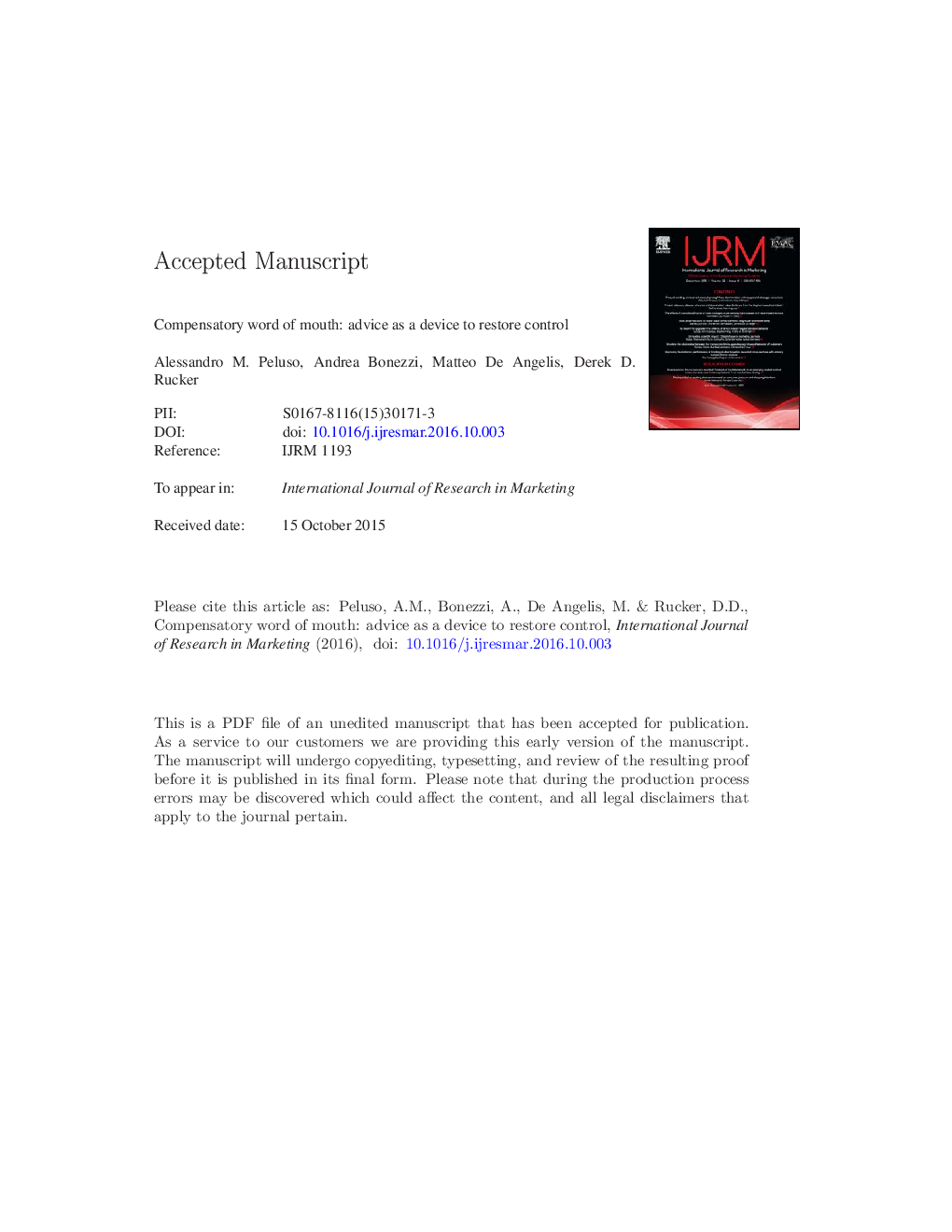| Article ID | Journal | Published Year | Pages | File Type |
|---|---|---|---|---|
| 5033747 | International Journal of Research in Marketing | 2017 | 55 Pages |
Abstract
Consumers often give advice by recommending products and services to one another. The present research explores the idea that advice giving sometimes reflects a self-serving desire to compensate for a loss of control. Four experiments provide convergent evidence for a phenomenon we term compensatory word of mouth, whereby consumers' communications contain advice fueled by their own need to restore control. Experiment 1 explores the potential practical relevance of this idea by showing that advertising messages can threaten consumers' sense of control and increase advice giving in word-of-mouth communications. Experiment 2 uses a different paradigm and further demonstrates that a threat to consumers' sense of control increases advice giving. As additional evidence of a compensatory account, Experiment 3 finds that threatened individuals' propensity to give advice is attenuated when they are first given an alternative means to restore a sense of control. Finally, Experiment 4 demonstrates that advice giving can serve a compensatory function by instilling a greater sense of competence that enhances consumers' feelings of control.
Keywords
Related Topics
Social Sciences and Humanities
Business, Management and Accounting
Marketing
Authors
Alessandro M. Peluso, Andrea Bonezzi, Matteo De Angelis, Derek D. Rucker,
